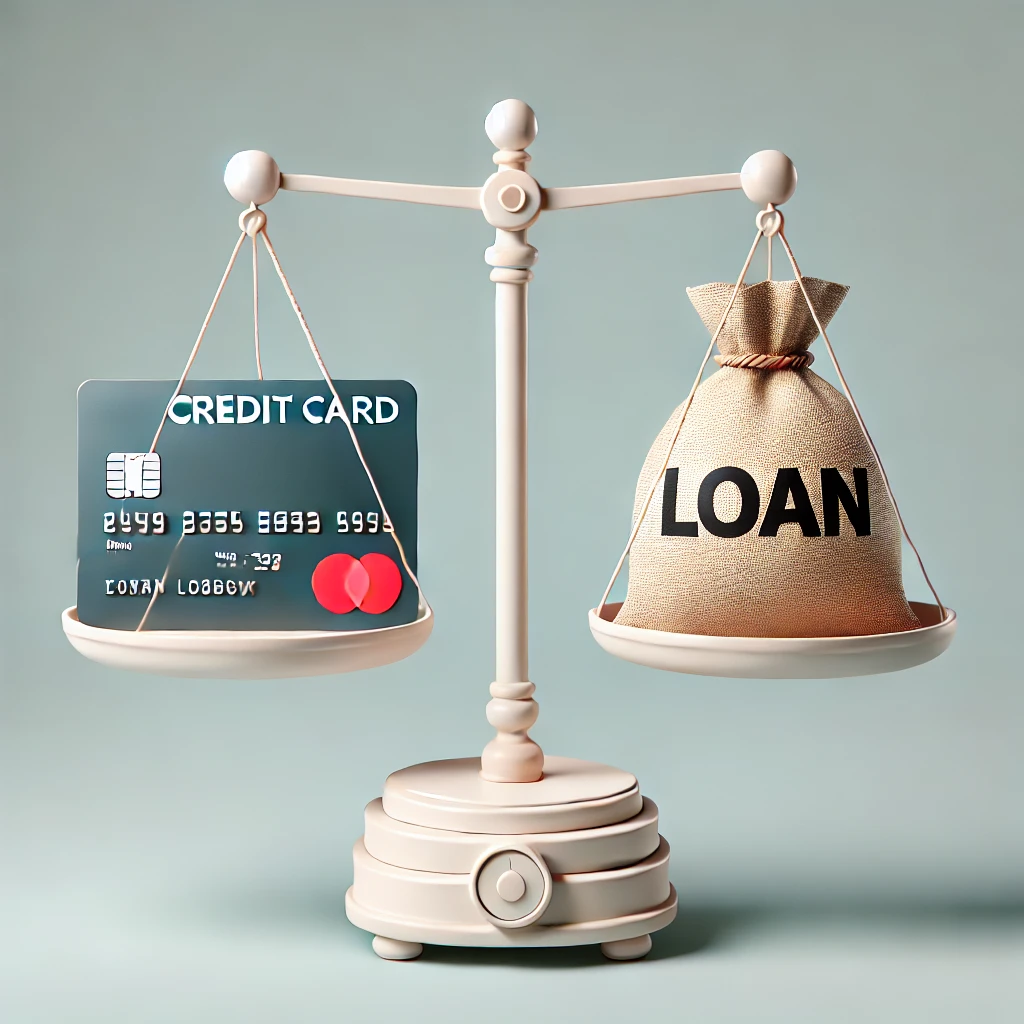
Making significant purchases often requires financial planning, and for many, this means choosing between a personal loan and a credit card. Both options have their pros and cons, and the best choice depends on your financial situation and goals. Let’s explore the key differences and scenarios where one might be better than the other.
Understanding Personal Loans
A personal loan is a lump sum of money borrowed from a bank, credit union, or online lender that you repay in fixed installments over a set period. These loans typically come with fixed interest rates, meaning your monthly payments stay consistent.
Pros of Personal Loans:
- Lower Interest Rates: Personal loans often have lower interest rates compared to credit cards, especially if you have good credit.
- Fixed Repayment Schedule: You know exactly how much you need to pay each month and when the loan will be fully paid off.
- Higher Borrowing Limits: You can typically borrow a larger amount than with a credit card.
- No Temptation to Overspend: Since you receive a fixed amount, there’s no revolving credit to tempt you to spend more.
Cons of Personal Loans:
- Upfront Processing Fees: Many lenders charge origination fees, which can add to the cost of borrowing.
- Lack of Flexibility: Once you take out the loan, you can’t borrow more without applying for a new one.
Understanding Credit Cards
A credit card is a revolving line of credit, allowing you to make purchases up to a set limit. You’re required to make at least a minimum payment each month, but you can pay more to reduce your balance.
Pros of Credit Cards:
- Convenience: Credit cards are easy to use for both in-store and online purchases.
- Rewards and Perks: Many credit cards offer cashback, travel rewards, or points for every dollar spent.
- Flexible Payments: You can choose how much to pay each month, as long as you meet the minimum requirement.
- Promotional Offers: Some credit cards offer 0% interest for an introductory period, making them attractive for short-term borrowing.
Cons of Credit Cards:
- High Interest Rates: If you don’t pay off your balance in full, you could incur significant interest costs.
- Temptation to Overspend: The revolving nature of credit can lead to overspending and higher debt.
- Impact on Credit Utilization: Carrying a high balance can negatively affect your credit score.
When to Choose a Personal Loan
- Large, Planned Expenses: For purchases like home renovations, weddings, or debt consolidation, a personal loan is ideal due to its structured repayment.
- Longer Repayment Periods: If you need more time to repay, personal loans typically offer terms ranging from one to five years.
- Fixed Budgeting: The predictable payments make it easier to plan your finances.
When to Choose a Credit Card
- Smaller, Short-Term Purchases: If you’re confident you can pay off the balance quickly, a credit card might be more convenient.
- Earning Rewards: For purchases that can earn cashback or other perks, credit cards provide additional value.
- 0% Interest Offers: If you qualify for a card with an introductory 0% APR and can repay within the promotional period, it can be a cost-effective choice.
Key Takeaways
- Assess Your Needs: Consider the amount, repayment term, and purpose of your purchase.
- Compare Costs: Look at the interest rates, fees, and potential rewards for each option.
- Think Long-Term: Ensure the choice aligns with your financial goals and ability to repay.
Whether you opt for a personal loan or a credit card, the right decision depends on your financial discipline and the nature of your purchase. By understanding the differences, you can make an informed choice that supports your financial health.

